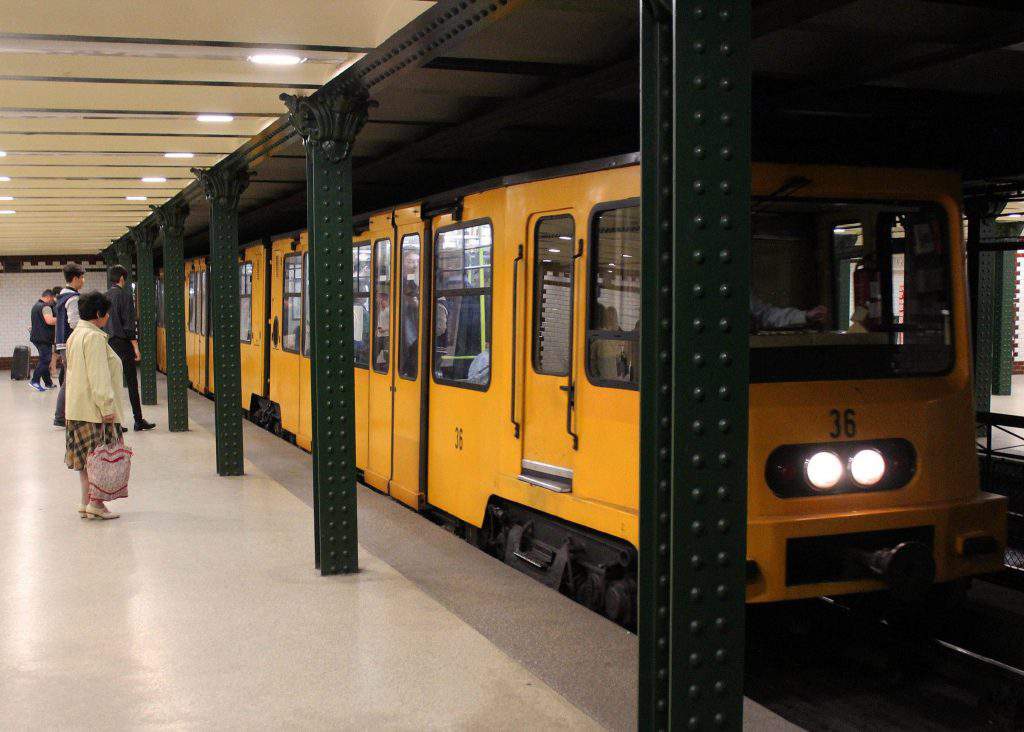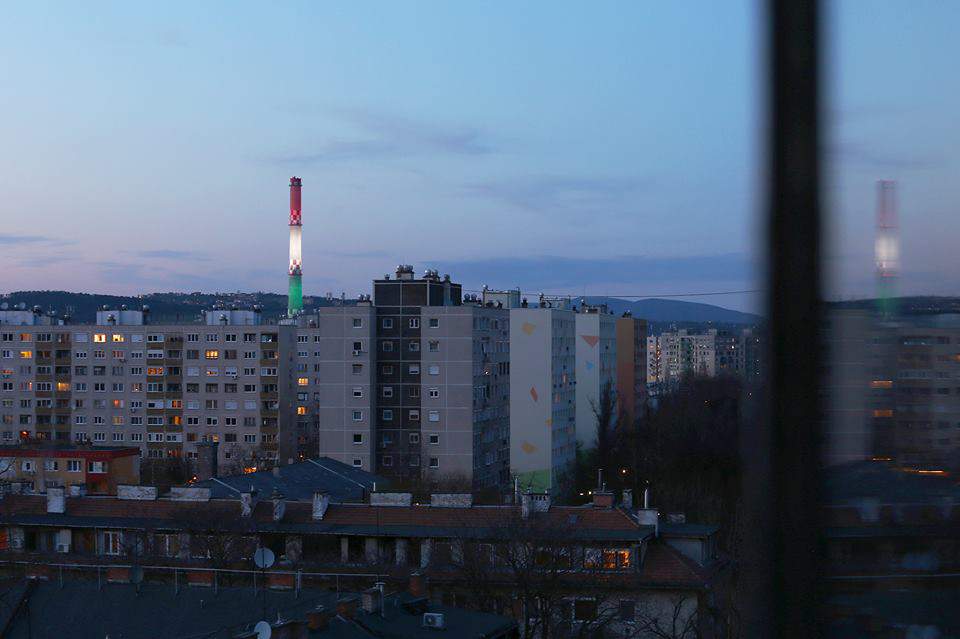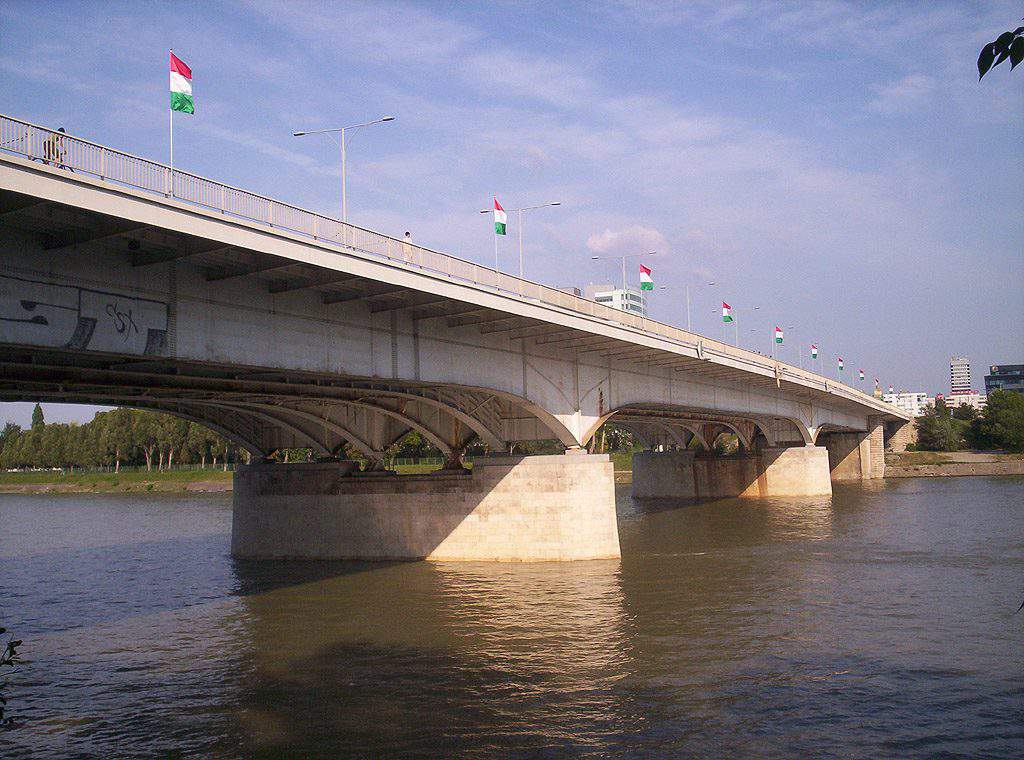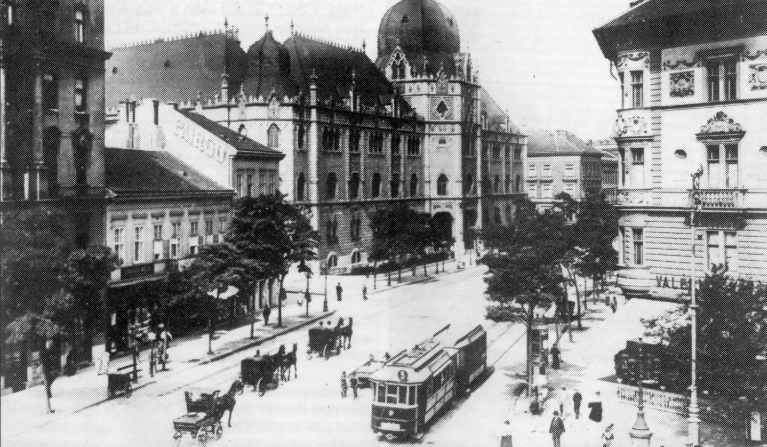Change language:
The ‘mosts’ of Budapest – Curiosities from the highest residential building to the longest underground escalator

If you think you know everything about Budapest, Hungary’s capital, and that you are familiar with every nook and cranny of the city – this article is for you. We move past common knowledge here and focus on the weirdest and quirkiest of facts, based on szeretlekmagyarorszag.hu‘s article.
The longest continuous residential building
The longest block of flats, located in Óbuda, is called ‘Village Hall’ for a reason. With close to 3 thousand residents living in the 884 units, it does feel like an entire village is crammed into the building. No wonder it turned out to be the most extended block of flats in the entire capital. The building has its own personal victory, too – in 2009, during a full renovation and modernisation, it got to be the proud owner of the biggest solar panel at the time.
The highest point of the city

Photo: facebook.com/pg/JanosHegyiErzsebetKilato
The highest point in Budapest is the János Hill, with the Elisabeth lookout tower on top – even if János Hill is only the 4th highest point of the Buda Hills. It is 527 metres, with the lookout tower adding 23.5 metres. Residents have always wanted a lookout tower, and the present building was worth the wait.
If the weather is good, it is possible to see as far as over 10 kilometres.
The current lookout tower is a beautiful Neo-Roman stone build by Frigyes Schulek, architect of the Fisherman’s Bastion, but there has been a long list of previous attempts, mostly from wood. It got its name after Empress Elisabeth of Austria, who was assassinated in 1898. The Empress was so loved and respected that more than 10 years after her death, Hungarians wanted to honour her and named the lookout tower after her.
The shortest underground section
The Millennium Underground Railway, or Metro Line M1, the ‘yellow line’, can be proud of several things. First of all, it was the first underground of continental Europe (only London had one before Hungary) as well as the first ever operating on electricity instead of steam, the old-time favourite. The shortest section between two stations is also here, from all the metro lines in Budapest. The average distance between two stops is 374 metres. However, the distance between Kodály Circus and Bajza Street is only 190 metres.

/Daily News Hungary/
The metro line, opened in 1896, originally had 9 underground stations and 2 were on ground level. Back then, the line came above ground behind Heroes’ Square, making Bajza Street the last station but one. Even though the line is somewhat longer now, it is still the shortest in Budapest, with the most stations compared to its size.
The longest underground escalator
Going down to certain stations, especially on Metro Line M2, can feel like you have been standing on the escalator forever. Well, the longest way down is
at Széll Kálmán Square, with the station being 38.6 metres under the ground, where the strong draft only adds to the feeling the ride is never going to end.
Metro Line M2 was under construction by the ’50s; however, the section from Örs Vezér Square to Deák Ferenc Square as well as the section to Déli Railway Station were only completed in 1972. The station at Széll Kálmán Square was built in a three-tunnel-style, with 4 escalators taking us downwards.
The highest building in Buda

Photo: facebook.com/pages/Észak-Budai-Fűtőmű
The highest building on the Buda side is the chimney of the Northern-Buda Thermal Power Plant. It has four management levels and an elevator with racks. The ferroconcrete tower was originally designed to host four smoke pipes; however, it only has two at the moment. Nevertheless, it is the third highest chimney in Hungary.
The tallest residential building
When it comes to the tallest residential building in Budapest, people often think about Semmelweis University’s block at Nagyvárad Square; however, that is not a residential building. The tallest residential building is actually the Újpalota water tower, built in 1975 based on the plans of Tibor Tenke and József Thoma. It is clearly visible from various points in Budapest.
Another curiosity of the building is its energetic wave lines and rounded edges that appear again and again on the inside. As for the size, contradicting data exist, however, both the plans and a professional article claim that
the building is 70.93 metres without the antennas, has 20 levels, 18 of which are for residents.
There are 98 flats inside, with the two top ones joined together as an artist’s studio.
The bridge built for the longest time
The bridge in Budapest that was planned and built for the longest time – not to mention that it was actually the longest bridge, up to 2008 – is Árpád Bridge. In its place, there used to be a bridge from Roman times, to help ease the way from Aquincum to the other side. For the present bridge, there were plans all the way back in 1903, though, officially, the plans were only brought public in 1929. Construction started in 1933; however, it had to be paused because of the Second World War. After the end of the war, working on the bridge continued, and it was unveiled at last on 7th November 1950. At the time, it bore the name of Stalin, but let us just forget about that.

Another curiosity of Árpád Bridge is that it brushes past two islands – Margaret Island and Óbuda Island – and that it was later extended, meaning one additional bridge was erected on each side. So, technically, Árpád Bridge is made up of three parallel but connecting bridges.
Nowadays, the longest bridge is actually the Megyer Bridge connecting Újpest and Budakalász.
The longest road
I bet you had no idea there was a road in the city as long as 15 kilometres… That is right, it is called Üllői Road, and it goes all the way from Kálvin Square to the South-Eastern part of Budapest. It goes through 5 districts, and its very last house number is 871. There is a lot to see if you venture onto any part of the road. You can see the Museum of Applied Arts, the Orczy Garden, the Groupama Arena as well as Népliget (People’s Park).

This road has gone through a lot of change over the decades, for instance, the ongoing renovation of metro line M3 also made it necessary to change certain things. However, it is still an integral part of the feeling of Budapest.
For more news, check out this article about the pilots’ view of Budapest.
Featured image: www.facebook.com/pg/budapestimages, Bódis Krisztián – The Parliament
Source: szeretlekmagyarorszag.hu







